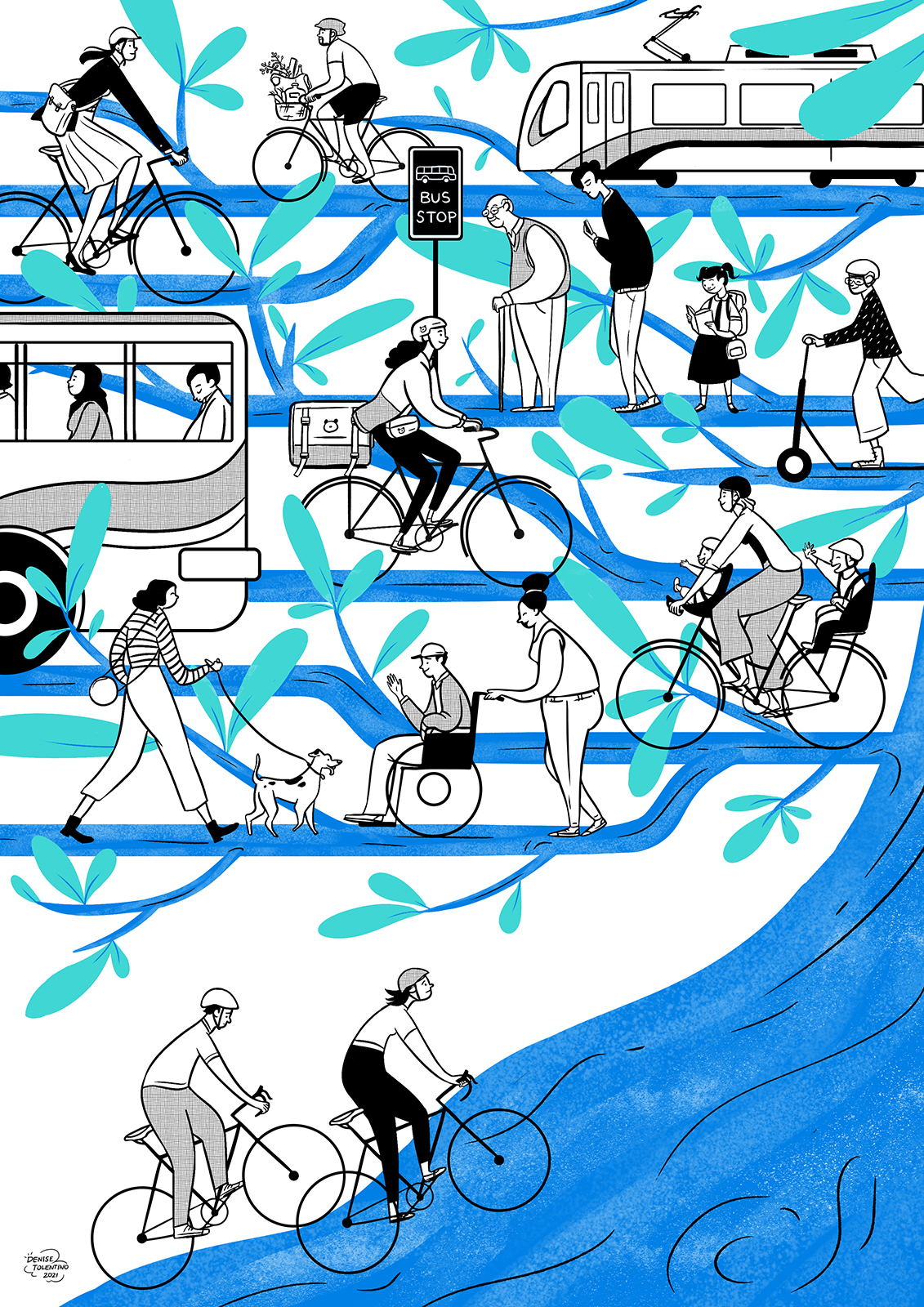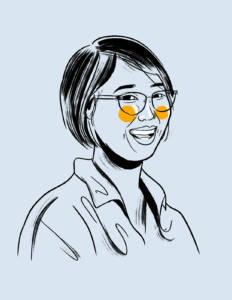Commuters, pedestrians, and cyclists; Leading the way to a better normal
We need to make our streets more inclusive. The best way to achieve this is to focus on commuters, especially women who are more exposed to street harassment. By understanding where women don’t feel safe, we can identify barriers and use that information to make corrective measures.
I started cycling in August of last year. I remember finally getting my mother’s bike out for a fix. It has been collecting dust in the garage for almost three years. I’ve meant to have it repaired for as long as I can remember, but it was never really a priority of mine up until the pandemic happened.
Before COVID-19, I had two options for traveling; it’s either I drive or commute, and I would often pick the latter because it allows me to save money while reducing my carbon footprint. But because of the limitations in public transport to limit the spread of covid-19, commuting has become even more grueling than before. Like many, I tried switching to cycling for my travel needs because it allowed me to move efficiently and safely.
As someone who refuses to be dependent on cars, I figured this would be the best time to finally build up my klutzy pedalling prowess, and so I went to my nearest bike shop. I live in Marikina, which is quite known for its hub of bike shops and its early-initiatives to improve walkability and cycling in the city.
When I arrived at the bike shop, I remember the long line of waiting customers. Bikes were hanging on the rack, and some were even scattered on the floor, waiting for a tune-up. I was surprised because there are plenty of bike shops in the area, and still, a lot of people were here even when it was almost at the end of business hours. I had to wait for about an hour to have my pedals and tires checked and repaired. During the waiting game, I counted about 53 cyclists sweeping the street afront. Some carried grocery bags, some were in their job uniforms, and a few dressed in spandex.
I remember the first few days where I started learning how to cycle and how terrifying it was to be on the road with speeding cars. Still, every time I can sense a speeding car right behind me, I lose my concentration. I can’t sweep off this feeling that a car will hit me. None of them reduced their speed and would repeatedly honk at me to move out of their way. I was intimidated, but what gave me a feeling of ease was that there were many other cyclists around me. A lot of them were women, too. Seeing them on the street and in online communities gave me a lot of confidence, knowing that I am not alone and that it’s okay to take up space. I continue to cycle because I hope and want to be a part of something that would encourage other women to take up cycling and foster this new sense of community and independence that I, too, felt when I first started.

“True Mobility for All”. Artwork by Denise Nicole Tolentino
My initial take away from being a cyclist was that the inequality among road users is stark even for a bike-friendly city such as Marikina. Walkable and bikeable cities are more than just bicycle lanes and footpaths. Infrastructures can only do so much, and there needs to be better support and consideration towards nurturing a thriving cycling culture: one that embraces mutual respect and equal road sharing among all road users, especially those who need safe passage the most – children, pregnant women, the elderly, and people with disabilities.
Mobility is a fundamental human right. Everyone, regardless of gender, age, income, or ability, should be able to travel safely. But the way most of our streets have been designed heavily prioritizes private cars’ movement above all else. For the longest time, the intrinsic right and ability to move is almost exclusive to car-owners when most Filipinos do not own cars. The lack of support and investment in improving other means of mobility, such as public transportation, sidewalks, and bicycles, therefore show an absence of democracy. We got so caught up in fixing the traffic congestion problem that we failed to address far more urgent issues of safety, security, and equal access to all means of transportation. Issues that, at the same time, have the most significant potential to get all of us from being “stuck”.
We need to make our streets more inclusive. The best way to achieve this is to focus on commuters, especially women who are more exposed to street harassment. By understanding where women don’t feel safe, we can identify barriers and use that information to make corrective measures. In the end, making our transportation systems safe and accessible for the benefit of vulnerable communities ultimately creates safe streets and roads for everyone, even for motorists.
Commuters, pedestrians and cyclists can lead the way to a better normal. But first, we need to count them so that our leaders and decision-makers can have the data to determine where investments in walking and biking infrastructure are most needed. By quantifying them, we will be able to measure the demand along with the economic development, public health, and environmental impacts of enabling inclusive and sustainable mobility.
The Author
 Celine Tabinga is the Urban Transitions Analyst for the Institute for Climate and Sustainable Cities (ICSC). She holds a master’s degree in environmental planning and management from Miriam College. She is currently helping develop and support ICSC’s gender work and low-carbon resilience agenda. She was previously the Special Projects Coordinator for ICSC and supported both the Alas ng Bayan exhibit and the Agam Agenda.
Celine Tabinga is the Urban Transitions Analyst for the Institute for Climate and Sustainable Cities (ICSC). She holds a master’s degree in environmental planning and management from Miriam College. She is currently helping develop and support ICSC’s gender work and low-carbon resilience agenda. She was previously the Special Projects Coordinator for ICSC and supported both the Alas ng Bayan exhibit and the Agam Agenda.
The Artist
Denise Nicole Tolentino is a freelance writer and illustrator. She uses her work to tell stories, inject humor, and push ideas that help make the world greener, safer, and fairer for everyone. She shares most of her works on instagram.com/drawnbydenise
Learn more about gender justice and feminist solutions at the upcoming Global Just Recovery Gathering on April 9-11, 2021. There are workshops that you can participate in and learn from amazing climate and social justice leaders from around the world. Pre-register now.
